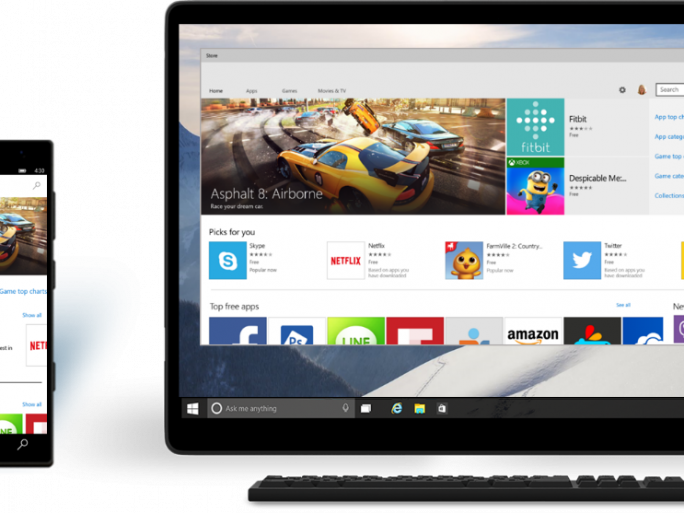Microsoft says it will be easier for Android, iOS and legacy Windows developers to port their creations to Windows 10 thanks a launch of four new ‘Universal Windows Platform Bridge’ toolkits.
The company said at its Build developer conference in San Francisco that it wanted to get Windows 10 onto one billion devices.
One of the main criticisms of Windows Phone, and the Windows Store, has been a lack of desirable software, something the new software development kits (SDKs) hope to address by allowing developers to make the most of their existing code by creating ‘Windows Universal Apps’ capable of running on a multitude of devices.
Windows Universal Apps
 Android developers will be more easily port Java and C++ code, while iOS app creators can transfer their Objective C. Similarly, Microsoft wants legacy .NET and Win32 applications to be available as Windows 10 apps and the company will also release an SDK for web apps too.
Android developers will be more easily port Java and C++ code, while iOS app creators can transfer their Objective C. Similarly, Microsoft wants legacy .NET and Win32 applications to be available as Windows 10 apps and the company will also release an SDK for web apps too.
“We look forward to more of the current 16 million Win32 applications growing their distribution through the Windows Store,” said Microsoft’s executive vice president of operating systems, Terry Myerson.
The SDKs have been tested with Adobe, which has used the Win 32 SDK to bring Photoshop Elements and Premier Elements to the Windows Store, and King, whose Candy Crush Saga app for Windows Phone was created using iOS code.
Microsoft hopes the reach of the Windows 10 ecosystem will encourage developers to port their applications. It says the Universal Windows Platform will expand support from phones, tablets and PCs to devices like the HoloLens, Xbox One and IoT devices such as the Raspberry PI 2, allowing software creators to maximise their investment.
Courting developers
 “The Universal Windows Platform and the Windows Store will continue that tradition and will welcome your existing code,” said Todd Brix, general manager of Windows apps and store at Microsoft. “As a developer, we recognize that you have existing investments (both in terms of code and skillset), and that providing a way to continue to use those investments is important.”
“The Universal Windows Platform and the Windows Store will continue that tradition and will welcome your existing code,” said Todd Brix, general manager of Windows apps and store at Microsoft. “As a developer, we recognize that you have existing investments (both in terms of code and skillset), and that providing a way to continue to use those investments is important.”
The Windows store will make it easier to implement in-app purchases, subscriptions and other monetisation options, while new app discovery features should make it easier for users to find applications to cater for their needs.
A new business portal will also be created, allowing companies to purchase software in bulk and manage what employees can download onto their machines.
“The expansion of the Windows Store to reach business customers and organizations represents both a new and a very large opportunity for developers. Based on Microsoft internal estimates, small to medium businesses alone spend roughly $70 billion annually on desktop software, applications and utilities.”
It is expected that Windows 10 will be released as a free update for Windows 7, 8 and Windows Phone 7 users this summer.
Take our Microsoft quiz here!





